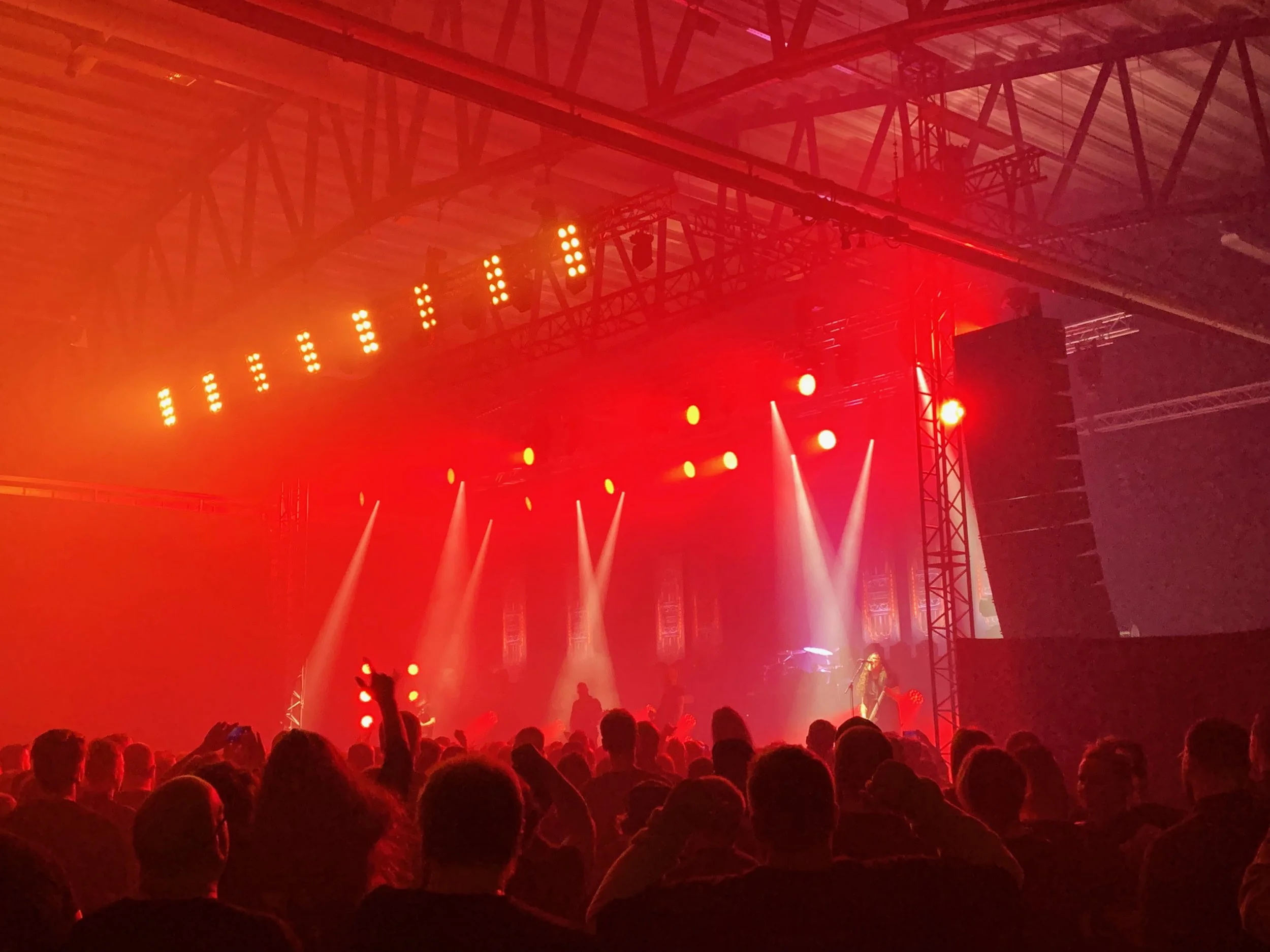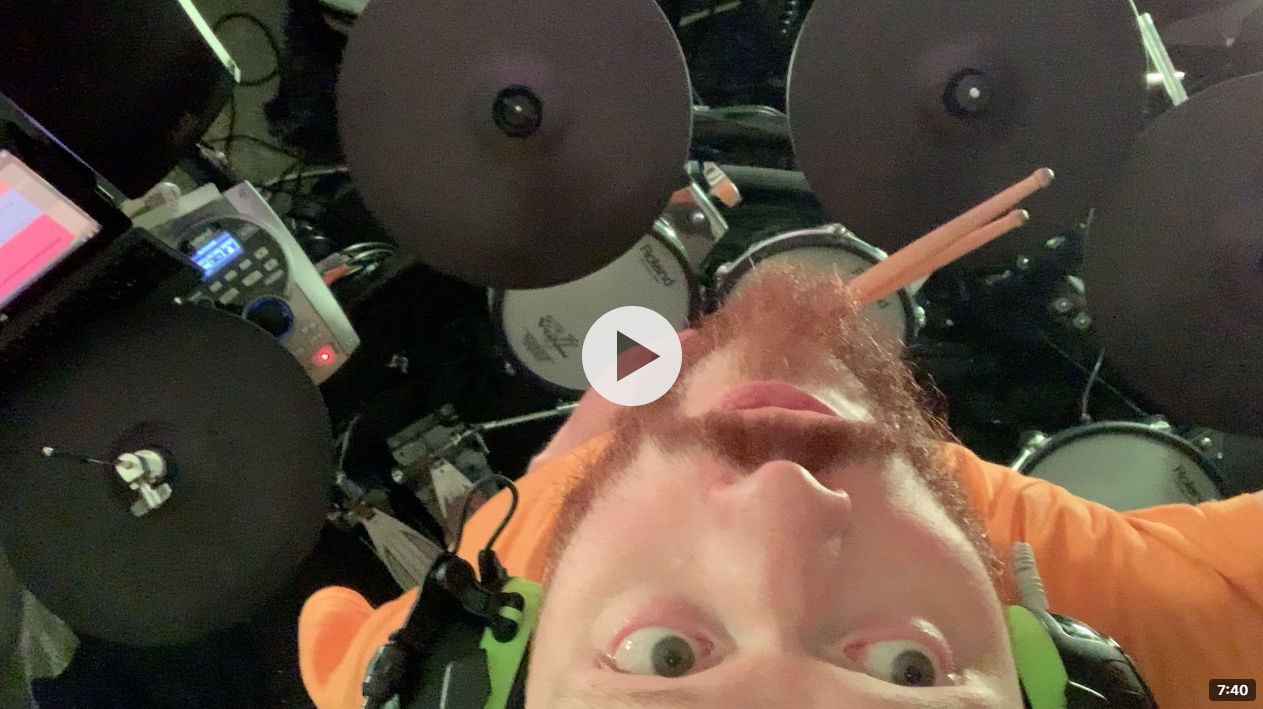When I practise musical instruments, I always select the most difficult song I can imagine. The primary reason is that it will ruthlessly reveal your biggest weakness to you. Then, enlightened, I simply focus on that specific weakness for weeks, months or even years until I discover the next weakness. This past month, I made a wonderful discovery in my drum practice (I started in 2019). Finally, I could easily tell that my left hand was my weakest link.
Read MoreOne of the drawbacks with acquiring a PhD is that you “lose” around five years of work experience, because you are busy studying. It’s the same with all forms of education a.k.a. sacrificing the present for the future. I felt this very strongly during my first years as an acoustician. My friends who went straight to a private sector employment had several years head start on me, so by the time I was finally ready to start working for real, I was far behind, and I was frustrated by the feeling that colleagues assumed that my experience would be great and not comparable to a fresh recruit. Of course, when you have a good education/toolkit in your mind, it is only a matter of time before you catch up and take the lead, and in my case, I reckon it took around ten years in total (including PhD studies). During my insane quest to learn the drums, I realized something similar the other day with regards to music.
Read MoreFive weeks ago, on day 1539 of learning Bleed, I doubled my efforts in drum playing from 15 minutes per day to 30 minutes per day. Up until the 9th of October, it felt as if I had almost stagnated for about 6-9 months. It is very nice to see the results now and wow, what a difference it made to increase the efforts. For the past 36 days I have finally felt steady progress again. I suspect that after 4-5 years of daily practice I had reached a skill level on the drums where 15 minutes just isn’t enough to advance anymore. It’s an interesting observation because I have seen similar patterns in my professional life.
Read MoreBack in July 2023, I began my fifth year of daily practice to nail the song Bleed by Meshuggah on the drums, as a beginner drummer. The insanity of this project is of epic proportions, which can be verified by anyone who has ever heard the original. Many people have asked how I am able to be so consistent with my practice, and if I interpret them correctly, it seems like they would have given up long ago. However, I have finally reached the stage where I cannot keep up my 15 minutes per day. It is simply too difficult. That’s why I have now decided to double my efforts.
Read MoreWhen I became active on social media a couple of years ago, I discovered the phenomenon of so called “haters”. They exist both in real life and online, but it sure seems as if they are more common online. The pattern often repeats like this, the first weeks or months (depending on your virality), the comments section usually becomes active with people who try to bring you down. My best example is when I have been documenting my progress of learning how to play the drums. Negative comments were more common in the first year, but from year two and onwards, it feels as if they have vanished. I guess it is not that fun to harass someone who couldn’t care less even if he tried.
Read MoreWhen I go on stage as a performing musician, my mind activates another setting. I get much more focused and find it a lot easier to enter the “flow” state. And when practicing at home, I often find my thoughts drifting away to irrelevant things. I’m probably not alone in this behavior and it’s also not surprising. There’s no “skin in the game” when practicing. There is no cost of messing up. But when you’re on stage, you will make a fool out of yourself if you don’t deliver. Hardcore, no extra lives when you mess up. I have found a very simple way to trick my mind that I am performing at a concert even when I am practicing at home.
Read MoreAny practicing musician knows that continuous practice over long periods of time will resemble a sine wave shaped staircase, with varying frequency. You experience good days and bad days, sometimes also clustered into good streaks and bad ones. Never has this been clearer to me than today when I am in my fourth year of daily drum practice of one single song: Bleed by Meshuggah. Any normal person´s gut reaction will probably be that a bad day feels like a failure. But a couple of weeks ago I realized that those bad days are the most important days of all. Because they reveal the truth. They show you what you can really do, without any sugar coating. Tonight, with a high fever, sleep depravation and a severe man-cold is a wonderful day for drum practice. Tonight, I will learn how far (or close) I really am to the goal of nailing this song.
Read MoreA very good rule of thumb when riding a motorcycle on a racetrack is to stay within 70% of your maximum capacity. Because you will need those spare 30% when you mess up – which you will. I love to do track days with my motorcycles. It’s the best practice there is. To expand your skill level and learn exactly where your current limit is and how it feels to approach it. That has saved my ass and perhaps even my life on several occasions in the real world, which is less forgiving than a racetrack.
Read MoreWhen I decide to do something, I often become obsessed. The perfect example is when I decide to learn to play the drums and chose Bleed by Meshuggah as my first song. This is arguably one of the most difficult metal songs ever written, and thus I thought that it must be the perfect place to start for obsessed beginners like me. If you learn a song on the very edge of what is possible, any other (normal) song becomes a walk in the park, right?
Read MoreThe year 2020 and 2021 have resulted in some interesting alternatives for live music. With most concerts cancelled, some artists went online instead and started to livestream. I personally find this approach very interesting for several reasons. The ability to play live to anyone in the world is the primary factor. And the possibility to experience it even after the concert is over is another. It opens a whole new forum for musicians to interact with their followers. However, I do suspect there is a huge technical barrier for many musicians. Personally, I love to figure out how things work and bang my head on a problem until I find a “perfect” solution. Learning how to livestream drums AND play the drums at the same time might perhaps be my most ambitious and rewarding project yet. Because there is no end in sight of technical problems to be solved!
Read MoreIt is now 24 months since I decided to learn Bleed by Meshuggah on the drums, as a beginner drummer. This is a totally crazy project, because it is arguably one of the most difficult metal songs ever written. It is also one of the best, and a personal favorite. I can now play all the parts of the song one by one, in somewhat lower tempo. It took almost two years to just understand the riffs. But now the next phase begins, which I call “The Grind”. It is the final push to connect all riffs together and bring the tempo up to the original speed. And paradoxically, this is the easiest part of the whole process!
Read MoreThe greatest difference between acoustic drums and electronic drums is that you can control the sound pressure level from the electronic drums by turning the volume knob. Whereas an acoustic drum kit will produce a sound pressure level that is what it is. If you want to play rock or metal, you need to hit the drums hard, or it will not sound or feel right. Consequently, the sound pressure level will be very high. The drummer only has one option, and that is to wear proper hearing protection while drumming, or face a near certain risk of permanent hearing loss. With the E-drums on the other hand, you can choose whatever sound pressure level that you like, and your ears will be safe. Or will they?
Read MoreI started playing the drums in July 2019 and am in my second year now of daily practice. First and foremost, I would consider myself a guitar player because I have played for more hours on the axe than on any other instrument. If you already know one instrument, it will be easier for you to learn a second, even easier to learn your third and so on. Mastery on multiple instruments is comparable to polyglots who speak several languages. It gets easier and easier to acquire a new one, the more you already know. In this post, I will focus on how some important lessons I have learned in my drumming. Some techniques translate well from the guitar, and others do not translate at all.
Read MoreA long time ago I was introduced to Stanley Jordan’s rendition of Elanor Rigby. When he plays the part at around 1:00 into the song my jaw dropped. He used the guitar in a new way that I had never seen before, and it sounded beautiful! I believe he called the playing style “touching”. It is basically two-handed tapping where your left hand plays the chords, and the right hand takes care of the melodies. I instantly started to read up on the method and practicing on my electric guitar. It soon dawned on me that the guitar would need some adjustments and optimization to play the touch style. Some examples are alternate tunings, extremely low string height and deadening the strings on the first fret with a piece of cloth so that they stop ringing as soon as you lift your fingers. However, that would have rendered the guitar unusable for normal playing. Touch style is very difficult even on a properly setup guitar, and if you try to play it on a regular guitar it becomes even harder. Frustrated, I started looking for a smarter way to do it, and that is when I learned about the Chapman Stick.
Read More












